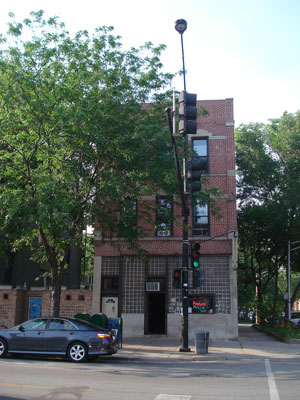 In many ways, Phyllis’ Musical Inn is similar to its sibling across the street – the Gold Star Bar. It’s difficult to talk about one without referencing the other. Their histories are similar, they both have ties to Nelson Algren, the clientele is virtually the same, the bars’ decor evokes a similar feel, and even the owners have co-sponsored events. The key differentiator for Phyllis’ is two-fold: the music and the beer garden.
In many ways, Phyllis’ Musical Inn is similar to its sibling across the street – the Gold Star Bar. It’s difficult to talk about one without referencing the other. Their histories are similar, they both have ties to Nelson Algren, the clientele is virtually the same, the bars’ decor evokes a similar feel, and even the owners have co-sponsored events. The key differentiator for Phyllis’ is two-fold: the music and the beer garden.
Phyllis’ is located in Wicker Park, on the corner of Division and Wood and just east of the now-defunct Czar Bar. Some of you may have thought that Phyllis’ is located in the Ukrainian Village, but technically Division separates the two neighborhoods with Wicker Park on the north side of the street. Smoke Daddy is adjacent to Phyllis’ beer garden and is the perfect place to grab some BBQ before the bands come on. The exterior to Phyllis’ hasn’t changed since the bar opened in 1954 as a polka club by an accordionist, Phyllis Jaskot, making the place Wicker Park’s oldest live music venue. This followed a stint as Harriet’s Inn and was back in the heyday of “Polish Broadway,” when Nelson Algren prowled the neighborhood and would stop by for a drink (or ten). Algren is a famous Chicago novelist, whose books celebrated the working man much like Mike Royko’s columns did in the Daily News, Chicago Sun Times and Chicago Tribune. Phyllis’ is housed within a brick three flat, has a facade primarily composed of glass blocks, and a small plate glass window with a small neon “Phyllis’ Musical Inn” hanging in it, with metal grating behind it. This makes Phyllis’ somewhat difficult to find at night, so just look for Smoke Daddy’s bright pink neon sign next door.
 Photo courtesy of martcoThe interior and furnishings looks very much the same as when Phyllis’ opened as well. The cocktail tables, flooring and bar all consist of well-worn wood. Colorful murals adorn the west wall, and very cool black and white wallpaper adorns the area above the bar, depicting piano keys, top hats and canes – very similar to that once found at Ivan’s. What looks like a Topp’s Big Boy with an inflatable guitar hangs from the high, gold-painted tin ceiling over the bar. Carrying on the inflatable theme, as seen one night, were a dozen blow-up ghosts scattered throughout the room. This seemed unusual, considering that it was summertime. They have undoubtedly all been popped or stolen by now. Mirrored and green beveled glass, and the large fish tank atop the coolers also add to the funky feel of the room.
Photo courtesy of martcoThe interior and furnishings looks very much the same as when Phyllis’ opened as well. The cocktail tables, flooring and bar all consist of well-worn wood. Colorful murals adorn the west wall, and very cool black and white wallpaper adorns the area above the bar, depicting piano keys, top hats and canes – very similar to that once found at Ivan’s. What looks like a Topp’s Big Boy with an inflatable guitar hangs from the high, gold-painted tin ceiling over the bar. Carrying on the inflatable theme, as seen one night, were a dozen blow-up ghosts scattered throughout the room. This seemed unusual, considering that it was summertime. They have undoubtedly all been popped or stolen by now. Mirrored and green beveled glass, and the large fish tank atop the coolers also add to the funky feel of the room.
At the back of the room lies a small stage. Here, a variety of lesser-known bands play under a Division/Wood keyboard mural and with an American flag as a backdrop. To the left of the stage is an Old Style “Cool Brew” sign in blue-green with reptilian scales, with the bathrooms below. What’s notable about the bathrooms, aside from their wretchedness, is the graffiti that covers all four walls and ceiling. Among the entertaining writings found there, was this: “Julie, Fuck You – Beans.” Short, to the point and thoughtfully signed. What more could you want in bathroom graffiti? Gino’s East eat your heart out!
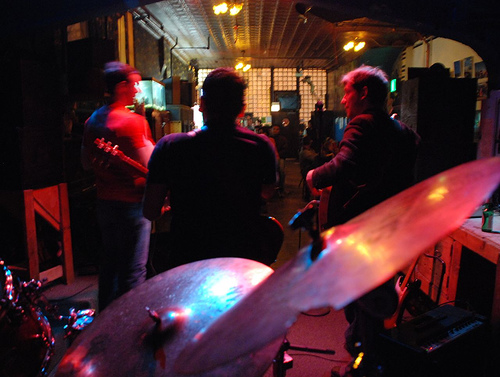 Photo courtesy of martco “Without a band there’s really not much to this place,” is written in the Sweet Home Chicago Real City Guide (1993). Good thing there’s a band almost everyday. Today, Phyllis’ is now owned by a former bike messenger named Clem Jaskot who continues the musical tradition of the Jaskot Family. While the polka bands of Phyllis’ day have yielded to groups that typically play garage alternative, the Musical Inn also attracts a fair number of jazz musicians on Monday nights and slam poets on Tuesdays at 10:00 p.m. Cover typically ranges between $3 and $7. If that seems expensive, which it shouldn’t, don’t worry – the beer is cheap. So cheap that I can’t remember how much, if you know what I mean. The vast majority of these bands are virtually unknown and can provide a level of entertainment to rival that of the writings in the can. A large reason for this is that Clem instructs the bands to keep cover songs to a minimum. How refreshing considering the score of Chicago bars that offer nothing but cover bands, like Hog Head McDunna’s. One night when I was at Phyllis’, a band known as Mr. Anxious (a.k.a. “Creepy D”) made up for what it lacked in creativity, in amusement value. They must have sang, “It’s coming for you… itch by itch” about 20 times in a row, which gave you enough time to really think about the lyrics – what if they really were coming for you? Itch by itch… Not something to look forward to. They also sang, “Broom-sticks… are made of wood,” over and over, but at times with curious ad-lib lyrics like, “Com-pu-ters… are made of wood.”
Photo courtesy of martco “Without a band there’s really not much to this place,” is written in the Sweet Home Chicago Real City Guide (1993). Good thing there’s a band almost everyday. Today, Phyllis’ is now owned by a former bike messenger named Clem Jaskot who continues the musical tradition of the Jaskot Family. While the polka bands of Phyllis’ day have yielded to groups that typically play garage alternative, the Musical Inn also attracts a fair number of jazz musicians on Monday nights and slam poets on Tuesdays at 10:00 p.m. Cover typically ranges between $3 and $7. If that seems expensive, which it shouldn’t, don’t worry – the beer is cheap. So cheap that I can’t remember how much, if you know what I mean. The vast majority of these bands are virtually unknown and can provide a level of entertainment to rival that of the writings in the can. A large reason for this is that Clem instructs the bands to keep cover songs to a minimum. How refreshing considering the score of Chicago bars that offer nothing but cover bands, like Hog Head McDunna’s. One night when I was at Phyllis’, a band known as Mr. Anxious (a.k.a. “Creepy D”) made up for what it lacked in creativity, in amusement value. They must have sang, “It’s coming for you… itch by itch” about 20 times in a row, which gave you enough time to really think about the lyrics – what if they really were coming for you? Itch by itch… Not something to look forward to. They also sang, “Broom-sticks… are made of wood,” over and over, but at times with curious ad-lib lyrics like, “Com-pu-ters… are made of wood.”
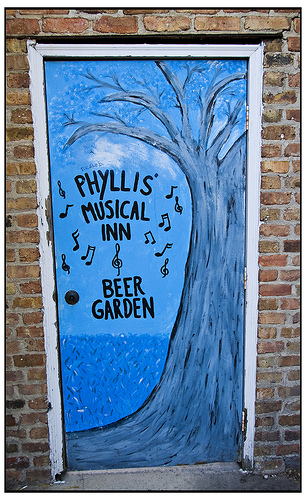 Photo courtesy of Seth Anderson As for the poetry, Phyllis’ hosts an open-mic on Tuesdays that was hosted for a few years by Big Daddy Shag and Thax Douglas, and was known as “Shag’s Li’l Thang.” The slam was much in the tradition of the Green Mill and Weeds Tavern. An open mic was available for anyone with an urge to recite poetry, spoken-word, rap, or even sing. While the old regs at the bar would drink Old Style and poke fun, the rest of the audience would get into it. If all of that isn’t enough for you, there’s a pinball machine by the door (just below a stuffed bird with a fish in its talons in mid-flight), a few televisions behind the bar, and three arcade games to the right of the stage. A DJ spins music from a wooden booth along the wall on the other side of the stage when the band isn’t on. A mysterious door in the west wall leads to one of the least known and most interesting beer gardens in the city. The garden fills up an entire lot and is isolated from the street by a tall brick wall, inlaid with more glass blocks and adorned by white flower planters. Patrons sit at a few picnic tables and banquet hall chairs, or play a bit of basketball (yes, there’s a hoop out there). Basketball may have been difficult one night while I was there as the major source of lighting came from cigarette lighters rather than light bulbs. So, a friend of mine and I busied ourselves by exploring an open construction site next door (now finished), where a tempting variety of ladders, grills and wooden planks were laying about. The area was blocked off from the street by the plywood that covers up the building’s partial frame, with a dumpster wheeled in front of it for good measure. That night, my friend leaned one of the ladders up against the wall and was about to jump down from the wall upon the dumpster below. Fortunately, I was able to talk him down. He then developed a strange fascination with breaking through the wall to get outside, even though he could have just as easily walked back through the bar.
Photo courtesy of Seth Anderson As for the poetry, Phyllis’ hosts an open-mic on Tuesdays that was hosted for a few years by Big Daddy Shag and Thax Douglas, and was known as “Shag’s Li’l Thang.” The slam was much in the tradition of the Green Mill and Weeds Tavern. An open mic was available for anyone with an urge to recite poetry, spoken-word, rap, or even sing. While the old regs at the bar would drink Old Style and poke fun, the rest of the audience would get into it. If all of that isn’t enough for you, there’s a pinball machine by the door (just below a stuffed bird with a fish in its talons in mid-flight), a few televisions behind the bar, and three arcade games to the right of the stage. A DJ spins music from a wooden booth along the wall on the other side of the stage when the band isn’t on. A mysterious door in the west wall leads to one of the least known and most interesting beer gardens in the city. The garden fills up an entire lot and is isolated from the street by a tall brick wall, inlaid with more glass blocks and adorned by white flower planters. Patrons sit at a few picnic tables and banquet hall chairs, or play a bit of basketball (yes, there’s a hoop out there). Basketball may have been difficult one night while I was there as the major source of lighting came from cigarette lighters rather than light bulbs. So, a friend of mine and I busied ourselves by exploring an open construction site next door (now finished), where a tempting variety of ladders, grills and wooden planks were laying about. The area was blocked off from the street by the plywood that covers up the building’s partial frame, with a dumpster wheeled in front of it for good measure. That night, my friend leaned one of the ladders up against the wall and was about to jump down from the wall upon the dumpster below. Fortunately, I was able to talk him down. He then developed a strange fascination with breaking through the wall to get outside, even though he could have just as easily walked back through the bar.
 Photo courtesy of Seth Anderson The same alterna-types found at Gold Star are found here – lots of glasses, odd facial hair, scruffy clothes and unkempt hairstyles. The New Bohemians. However, during the day, the working class neighborhood regulars hold court in Nelson Algren style. According to The Official Chicago Bar Guide (1994), “When the sun goes down, the old regulars scuttle out and the trendies breeze in.” That’s still true today. Combined with the band scene, Phyllis’ has a similar feel to Mutiny, Empty Bottleand theHideout.
Photo courtesy of Seth Anderson The same alterna-types found at Gold Star are found here – lots of glasses, odd facial hair, scruffy clothes and unkempt hairstyles. The New Bohemians. However, during the day, the working class neighborhood regulars hold court in Nelson Algren style. According to The Official Chicago Bar Guide (1994), “When the sun goes down, the old regulars scuttle out and the trendies breeze in.” That’s still true today. Combined with the band scene, Phyllis’ has a similar feel to Mutiny, Empty Bottleand theHideout.
While places like Metro, the Double Door and Elbo Room are widely known for popular alternative acts, look to joints like Phyllis’ Musical Inn for where these bands started out thanks to Clem. Check the place out, have a few Old Styles, chat with the regs at the bar, and take in the show. If the music gets too loud or the air too stuffy, head out to the beer garden for some night hoops or across the street to Gold Star. For more information, you’ll have to call as Phyllis’ doesn’t have a website. If you don’t go there, Shag himself may come for you… itch by itch.
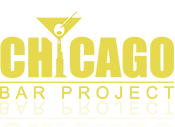
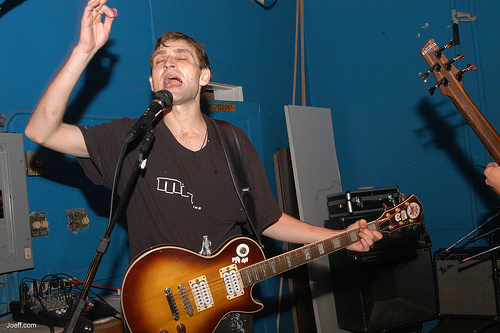 The Multi-Vitamins
The Multi-Vitamins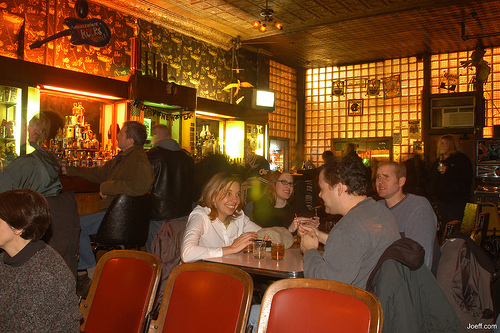 Photo courtesy of Yo! Chicago
Photo courtesy of Yo! Chicago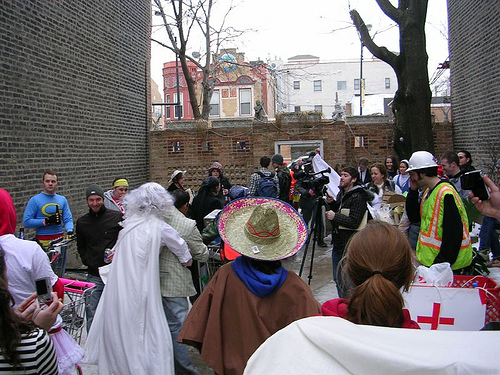 Photo courtesy of emerald_772
Photo courtesy of emerald_772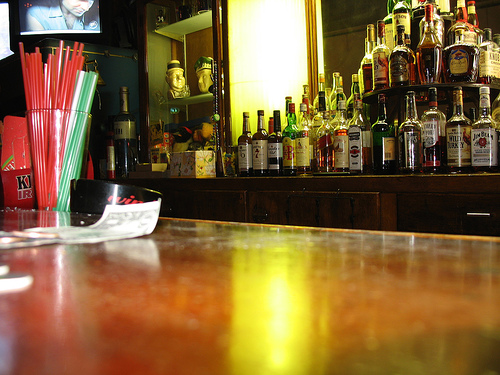 Photo courtesy of Kaarin T.
Photo courtesy of Kaarin T.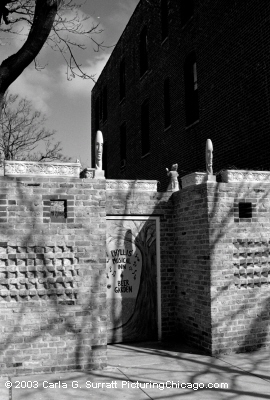 Photo courtesy of Carla G. Surratt of Picturing Chicago
Photo courtesy of Carla G. Surratt of Picturing Chicago